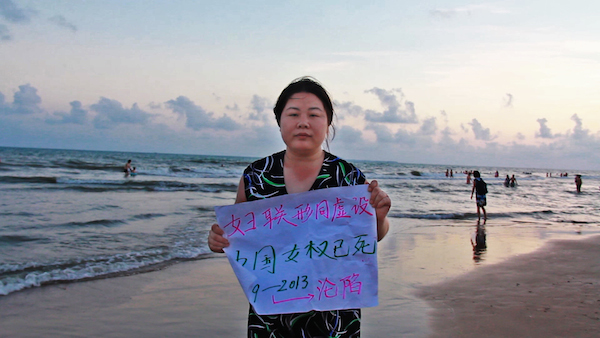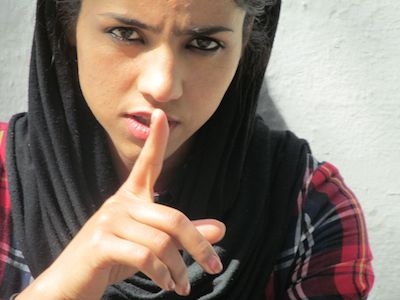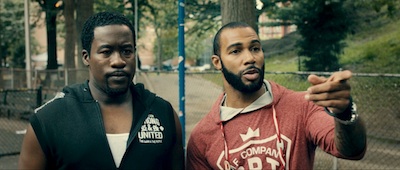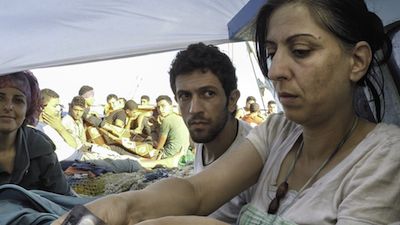Human Rights Watch Film Festival 2016
Formed in 1978, Human Rights Watch is one of the world’s leading independent organizations devoted to defending and protecting human rights. Having long recognized the power of film to educate and bring change, the organization’s New York-based Human Rights Watch Film Festival screens approximately 500 films in 20 cities around the world each year. The 2016 edition of its New York City event is presented by the Film Society of Lincoln Center and IFC Center from June 10 through 19, featuring 18 feature films and three interactive programs. Here are some highlights:
Opening Night selection is Hooligan Sparrow, which documents the efforts of filmmaker Nanfu Wang to track Chinese activist Ye Haiyan (aka “Hooligan Sparrow”) in her mission to prosecute a school principal who arranged the rape of schoolgirls by government officials. Sparrow, a women’s rights advocate who first made headlines by speaking up for sex workers, seeks to close a loophole in China’s child prostitution laws that has enabled officials to elude rape charges by claiming that the victims were prostitutes. Hooligan Sparrow shows its protagonist and a small group of fellow protestors being harassed regularly by government-hired thugs, as Wang uses hidden cameras to record interactions with uncooperative police officials. Sparrow avoids arrest by fleeing to several cities during the course of the film, including her home village, as she awaits the verdict in the schoolgirl case. For Hooligan Sparrow, Wang will receive the festival’s 2016 Nestor Almendros Award for courage in filmmaking.
Closing the festival is the Sundance Grand Jury Prize winner Sonita, a powerful film by Rokhsareh Ghaem Maghami that follows a teenage Afghan refugee living in Iran, in her quest to become a rapper, despite overwhelming odds. Much to Sonita Alizadeh’s despair, her mother is determined to obtain a “bride price” by marrying her off in order to finance her brother’s marriage. Also, though Sonita studies at a relatively progressive center in Iran and is supported by a sympathetic social worker, women are prohibited from singing solo in that country. The determined Sonita nevertheless finds a producer to record her songs, which eventually leads to a popular YouTube video for the emotional track “Brides for Sale” and an offer to attend school in the U.S. As in Hooligan Sparrow, the filmmaker becomes part of the story, as Maghami ultimately involves herself in Sonita’s plight. Though many feel that the role of a nonfiction filmmaker is strictly to document events, that ideal often becomes impossible when dealing with human rights subjects.
Another compelling film dealing with women’s rights, Michele Mitchell and Nick Louvel’s The Uncondemned follows an international group of young lawyers and activists as they work to have rape recognized as a war crime at the International Criminal Tribunal for Rwanda. Their mission to indict a mayor of one village depends on the testimony of a group of victims, organized by one brave soul whose husband and daughter are murdered as a warning to would-be witnesses.
One of only two dramas presented by the festival, Jamal Joseph’s Chapter & Verse is the fictional story of S. Lance Ingram (Daniel Beaty, who wrote the script), a reformed gang leader from Harlem who returns to the neighborhood after serving eight years in prison. This clear-eyed film shows Ingram grappling with his menial meal-delivery job, a soul-sucking halfway house and neighborhood toughs, but also developing deep friendships with an elderly woman and her grandson, in addition to a local barber who runs an informal gym. Though fictional, Chapter & Verse realistically portrays the plight of many who fight to stay straight.
Another fascinating glimpse into the lives of women in Iran, Mehrdad Oskouei’s Starless Dreams is a snapshot of a female juvenile delinquent center in Tehran. Teenage girls guilty of carjacking, drug dealing and murder act tough, but suffer depression and general hopelessness as they face the prospect of being released to abusive families or other untenable life situations. The girls form a strong camaraderie in a sad place that is nevertheless a sort of respite from reality.
A timely festival entry, George Kurian’s The Crossing is a first-person account of a group of Syrian refugees in Egypt (where things are not much better), who flee to Europe, smuggled across the Mediterranean in a small boat. The film uses footage taken by refugee Rami Aramouni, an IT worker who buys a camera to document the exhausting and risky trek. Aramouni’s fellow travelers are also mostly middle-class professionals (a journalist, a pharmacist, a conservatory-trained musician) who “are not fleeing for a better life; they just want to have a life.” Once they arrive in various EU refugee sites, the struggle for normalcy continues as they await their asylum status and try to stay sane amid regulations that prevent them from working or attending school.
Other films to be screened at the festival include Michael Collins’ Almost Sunrise, Craig Atkinson’s Do Not Resist, Eric Juhola’s Growing Up Coy, Dalibor Matanić’s The High Sun, Sophia Luvara’s Inside the Chinese Closet, Maisie Crow’s Jackson, Joanna Sokolowski and Kate Trumbull-LaValle’s Ovarian Psycos, Danae Elon’s P.S. Jerusalem, Kristi Jacobson’s Solitary, Jason Benjamin’s Suited, Tatiana Huezo’s Tempestad, and Heidi Brandenburg and Mathew Orzel’s When Two Worlds Collide.
The Human Rights Watch Film Festival takes place June 10–19 at Lincoln Center and IFC Center.
—Marina Zogbi





